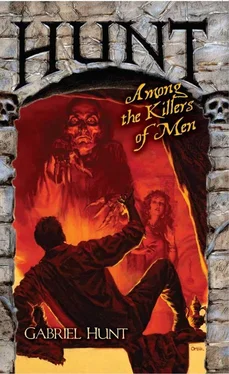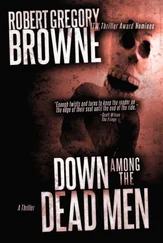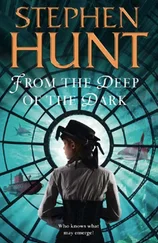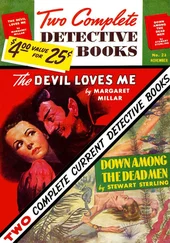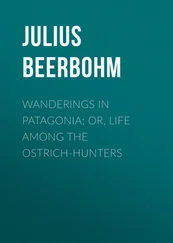“That was his crisis of faith,” said Gabriel.
“Exactly. His duty versus his honor. Very Chinese.”
“I know how this one ends,” said Gabriel. “Betrayal. It’s who betrays whom I’m having a hard time figuring out.”
Meanwhile, Gabriel was suffering his own crisis. He still had a syringe of the Iron Fist happy-hour cocktail in his pocket. He’d grabbed two and only used one on the gunner in the cage room. The other he’d begun thinking he could get to a lab, have them break it down, analyze it. Synthesize countermeasures.
But if what he was seeing in Mitch was the first stage of withdrawal, he was going to have to use the needle on her. Perhaps diluted. Perhaps in increments. But even so, the sample would soon be gone—and she’d be rendered a null-sum as a team member for the duration.
Part of his mind—the impatient part, the selfish part, the part that had so often kept him alive in tight spots—was asking what, really, did he owe her? Hadn’t he picked up that check? Hadn’t he been picking them up for Mitch ever since he’d posted her bail back in New York? Hadn’t he paid plenty in skin and blood and gunfire; in nightmares and pain?
But his sense of justice was at stake here. That was the other part of his mind, the part that kept getting him into all those tight spots in the first place. He had allowed the undertow to drag him this far because Lucy was relying on him—and because men like Cheung needed taking down. And if Mitch’s tragedy was a minuscule one for planet Earth, so what? Move a single grain of sand on a beach, everything in the world is changed. How’s that for Zen?
“I’m not so sure Qi won’t just shoot us on sight,” said Gabriel, considering their range from the pagoda. “If Tuan knew her whereabouts, then Ivory knows, which means Cheung knows. And if she’s found out that Tuan’s dead, that he betrayed her…”
“…she may be in a mood to shoot anyone that approaches.”
“Keep your eyes open,” Gabriel said.
“I’ll try,” Mitch said.
But Qingzhao was not to be found.
They entered the pagoda without incident and searched from room to room without turning her up. Mitch doubled over with a cramp about the time they entered the third of the shrine rooms.
“God, this feels really…weird,” said Mitch, breaking a sudden sweat. Her temperature was skyrocketing.
The puzzle-box base of the idol was securely shut. Qi’s bike was gone.
But most of her hair was still here. It lay at the foot of a narrow mirror, hacked off in clumps, apparently with the combat knife lying atop one clump.
The water in the big iron cauldron was room temperature. Gabriel decided to stick Mitch inside to keep her from running too hot. She didn’t resist as he undressed her. He helped her up and over the side. She settled in, laid her head back against the rim. Her head jittered against the metal, perspiration beading on her brow.
He had ten cubic centimeters of amber fluid in the needle.
Okay, give her two.
He did not want to waste time or serum on a skin pop that might not take hold, and she was compliant when he tapped up a vein in her forearm. He uncapped the syringe. It was the sort of small, disposable plastic hypodermic found at free clinics all over America. The Iron Fist had probably went through these things by the gross.
Very carefully, he allowed about a drop and a half to enter her system.
Her response was instant. The tremor in her head and neck vanished, and she seemed to nod off. Gabriel hurriedly checked her pulse (slow), respiration (shallow), pupil dilation (considerable). Her breathing was barely audible but regular. She wasn’t dead.
He checked her again about every two minutes while he fired up a few torches and managed to get some coffee going on Qi’s campstove.
It was the better part of an hour before Mitch cracked her eyes open. Her pupils were huge. Her green irises had subsided to a pale shade similar to algae.
She brought up a handful of water as though it was a rare treasure, and trickled it over her face. Droplets hung from her brow, nose and chin as she watched the water return to the tub in a stream. Her expression was concentrated, one of almost religious intensity. She ignored Gabriel checking her vital signs. Watching the water was paramount right now.
“Are you back?” said Gabriel. “You okay?”
In response she grabbed his wrist, pulled him close. “Where am I? Who are you?”
“I’m Gabriel,” he said.
“Who?”
“Lucy’s brother.” Her face relaxed at the mention of Lucy’s name. Her grip did, too. He pulled his arm free. “Lucy,” she whispered. “Come here, Lucy.”
“Mitch,” he said. “Lucy’s not here.”
“Sure she is,” Mitch whispered, her gaze unfocused. “She’s right next to you. Why don’t you say something, Luce? You mad at me?”
“It’s not real, Mitch—it’s the crap in the needle. Mitch, are you listening to me?” She’d begun to weep, had raised one arm from the water and was reaching out toward the empty air beside him.
“I can hear your heartbeat, Luce,” she murmured. “Come here, baby. Come here. That’s it, get in.”
“Damn it, Mitch, she’s not…” He dropped it. There was no arguing with someone under the influence of a hallucinogen this powerful. At least she wasn’t imagining herself at war again. Who knew what she was imagining, exactly, but it seemed to be giving her pleasure. The tears had stopped, and her head was tilted back against the cauldron’s edge once more. Her breathing was becoming rapid. Gabriel turned away. Let her have her privacy.
Full-blown traditional Chinese funerals are notoriously ornate, complicated and lengthy affairs. Some of the more elaborate ones last two years.
In the case of the late Tuan, many of the rites were Westernized in accordance with China’s lunging urge toward modernity. But his casket was the traditional three-humped rectangular box, decked head-to-toe with flowers and literally thousands of encomia calligraphed on white paper or cloth. Tuan would be wellhonored on New Year’s, and on Grave-Sweeping Day.
Presentation of the casket (not sealed until after the wake) was strictly according to feng-shui : the head of the deceased facing the inside of his place of residence, white cloth over the entrance, gong on the left side of the doorway. Along with jewelry, red appointments or clothing were forbidden, as red was a color of happiness (exceptions were made if one died eighty or older, but Tuan had been far from this milestone). Inside the casket, Tuan was swathed in finery, a yellow cloth over his face and a blue one over his body. All of his other clothing had been burned, and a pile of ashes on a rattan mat attested to this.
Tuan’s send-off was in defiance of the Communist imperatives that frowned on lavish funerals. Not only were big funerals seen as superstitious and wasteful, but their sheer level of filigree was in itself an indictment, suggesting that the deceased was a criminal, since only ill-gotten gains could pay for something this fancy. Stacked against this official modern stigma was the common belief that expensive funerals guaranteed peace in the afterlife.
Tuan’s would be no simple village funeral. There would come snake dancers and professional wailers, demonstrative mourners, extravagance, fireworks, fury and a party atmosphere lit by a conflagration of burned paper effigies. So what if it implied he’d been a criminal? In his case, everyone knew it was true, and this liberated the planners to spare no expense.
But for now, the private, invitation-only elite entitled to a more privileged remembrance inside the Pleasure Garden were startled by the sight of two caskets on the ceremonial bier.
Читать дальше
